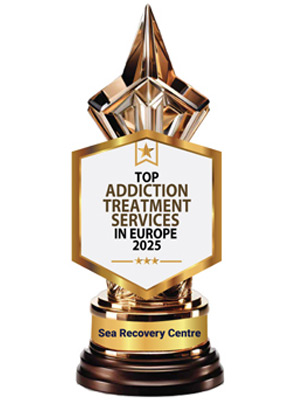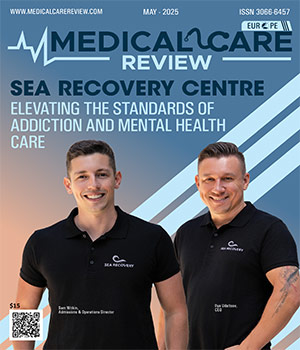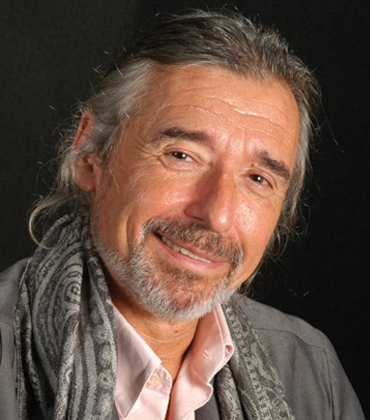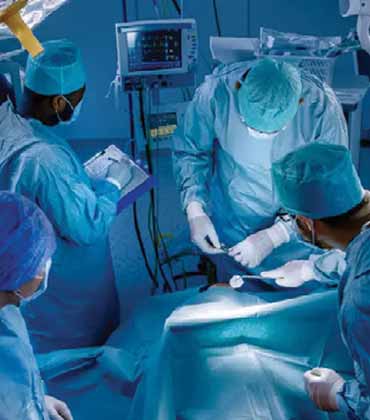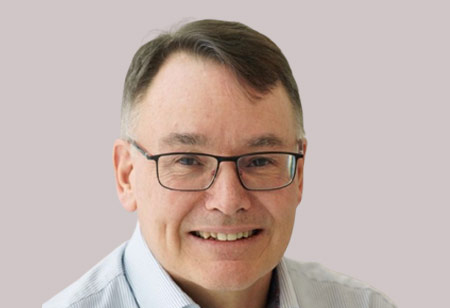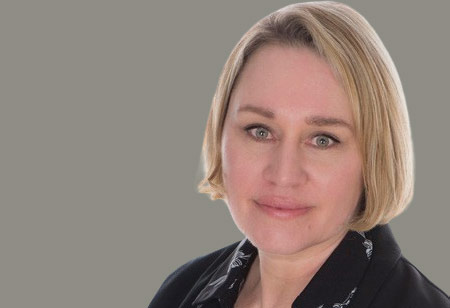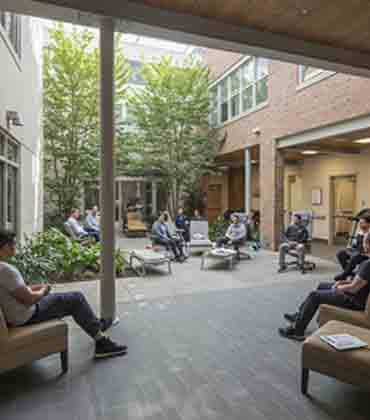Thank you for Subscribing to Medical Care Review Weekly Brief
- Home
- May 2025
Medical Care Review: Specials Magazine
Set against the stunning backdrop of Spain’s Mediterranean coast, Sea Recovery Centre has redefined the paradigm of addiction treatment. Its success is built on bespoke services, world-class amenities, and innovative therapeutic approaches. Located in the exclusive gated community of Sotogrande—just a short drive from Marbella and easily accessible from three international airports—this luxury rehabilitation facility provides a sanctuary for those seeking recovery in an environment of beauty and tranquility. As a result, Sea Recovery Centre has become Spain’s leading luxury rehabilitation facility. The centre’s commitment to individualized care, combined with its integration of evidence-based and holistic therapies, positions it as a beacon of hope for clients facing addiction and mental health challenges. “Our philosophy is driven by a comprehensive, client-focused approach to recovery that combines psychological, physical, and emotional healing,” says Ilya Udaltsov, the CEO. Each treatment program is uniquely tailored, beginning with a thorough assessment to identify the client’s specific needs and extending to a lifetime aftercare plan designed to sustain recovery beyond their stay. Clients benefit from a multidisciplinary team of professionals providing 24/7 medical supervision, ensuring safety and comfort throughout the detoxification process. Upon arrival, clients undergo a medical evaluation and, if necessary, a safe, supervised detoxification process supported by 24/7 onsite nurses. This phase addresses immediate physical needs and alleviates fears, establishing a strong foundation for recovery. Next is the Psychological and Holistic Therapies stage, which focuses on restoring emotional stability and mental clarity. Through a combination of traditional therapies and innovative holistic treatments, clients learn to manage triggers, reframe negative thought patterns, and develop coping mechanisms for long-term success. The final stage prepares clients for reintegration into daily life, emphasizing personal growth, social connections, and spiritual well-being. This is reinforced by a lifetime aftercare program, offering ongoing support and guidance whenever needed.
Top Addiction Rehabilitation Detox Centre in Europe 2025
Addiction goes beyond just the substance. At CITA Clinics, a pioneering addiction treatment centre with over 40 years of experience, this understanding is the foundation of its transformative approach to recovery. CITA isn’t focused on just eliminating substances or behaviours; it’s all about identifying and addressing the root causes that fuel addiction. “The drugs are not the problem; they are the consequence of deeper issues. The real challenge lies in understanding why a person loses control over their behaviour, and that’s where our work begins,” explains Dr. Josep María Fábregas Pedrell, founder and director. CITA offers a holistic, personalised approach to addiction recovery. With decades of experience, it has helped numerous patients regain control of their lives by focusing on the internal factors that drive addiction. Addiction is a breakdown in self-regulation. Whether it’s drugs, gambling, or other compulsive behaviours, CITA approaches these as outward expressions of inner turmoil. Treatment is never one-size-fits-all. Age, family dynamics, mental health, duration of addiction and even professional responsibilities all shape how addiction manifests and how it must be treated. CITA’s program is designed to adapt to the individual, ensuring that every person receives the care they need for true recovery. For instance, a patient battling severe ketamine addiction had experienced years of emotional and physical distress. Upon arrival, they were given a tailored detox plan, neurorehabilitation support and a therapy schedule designed around their needs. Through a combination of counselling, mindfulness, group sessions and experiential therapies like yoga and animal-assisted sessions, the patient made a full recovery—emotionally, mentally and socially. Their story reflects CITA’s core philosophy that real recovery happens when we treat the person, not the addiction.
Top Plastic Surgery Clinic In Europe 2025
Plastic surgery at Noahklinik goes beyond enhancing appearances—it’s about restoring confidence and improving the quality of life. The clinic offers an extensive selection of cosmetic and reconstructive procedures, all performed with meticulous care to deliver optimal results while maintaining the highest patient safety and well-being standards. Every treatment plan is customized to reflect the personal goals and anatomical features of each patient, ensuring results that are natural-looking. With a focus on patient-centered care, the clinic provides a comprehensive approach, supporting patients through every step of their journey. Led by Prof. Dr. Ernst Magnus Noah, founder and chief physician, Noahklinik offers expert plastic surgery services grounded in experience, precision, and care. Plastic surgery is no longer reserved for celebrities—more and more women and men are embracing these procedures to enhance their appearance, boost confidence and support overall well-being. The clinic’s cosmetic procedures reflect each patient’s unique aesthetic goals. These include breast augmentation, which can be performed using implants or fat transfer for fuller, natural-looking breasts. Rhinoplasty, a procedure focused on both aesthetic and functional improvements of the nose, is also popular. Facelift surgery helps reduce signs of aging, such as sagging skin and wrinkles, for a rejuvenated appearance. Along with this, liposuction targets excess fat in areas like the abdomen, thighs and hips to sculpt the body. Restorative and Reconstructive Surgery for Improved Function and Confidence In addition to aesthetic surgeries, Noahklinik is renowned for its expertise in reconstructive procedures, which are essential for patients who have experienced trauma, illness or congenital conditions that affect their body’s appearance or function. These surgeries aim to restore both form and function, significantly improving patients’ quality of life and emotional well-being. Reconstructive surgery at Noahklinik is central to helping patients regain physical function and self-confidence. For women who have undergone a mastectomy, breast reconstruction helps restore a natural shape, aiding in both physical healing and emotional recovery after breast cancer treatments. The clinic also provides scar revision surgery, which improves the appearance of scars resulting from trauma or burns. Hand surgery is another specialized area, focusing on restoring function and mobility after injury or congenital conditions. For children born with cleft lips or palates, the clinic performs surgeries that not only improve speech and eating abilities but enhance their overall appearance.
CXO INSIGHTS
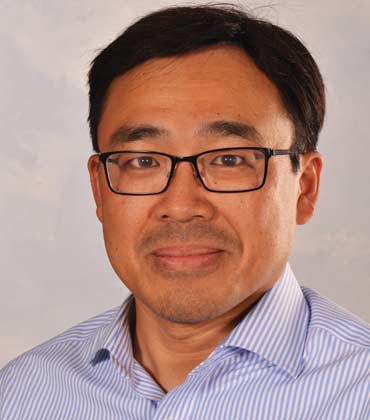
The 3 Is For Innovation In Digital Health
Dr. Antoni Chan, MBChB, PhD, FRCP, Clinical Lead in Rheumatology, Royal Berkshire NHS Foundation Trust
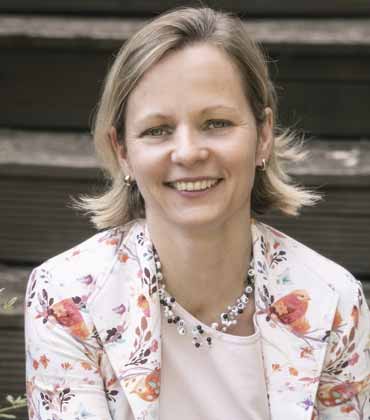
Navigating The Challenges Of Sustainability In Healthcare
Vratislava Kovarova, Senior Director Population Health and Medicine, Fresenius Medical Care
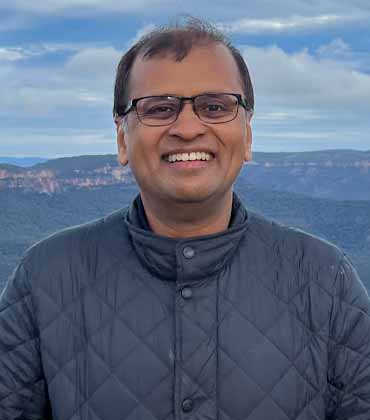
The Role Of Human Rights In Medicine
Piyal Sen, Medical Director and Consultant Forensic Psychiatrist, Elysium Healthcare
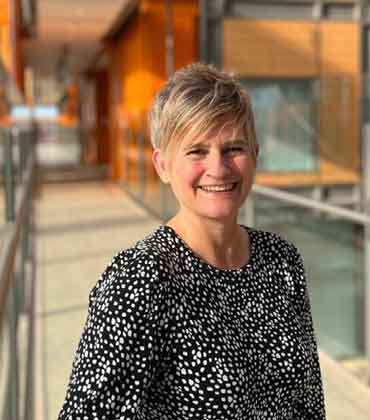
Role Of Clinical Procurement For Healthcares Resilient Future
Clare Nash, Head of Clinical Procurement, Sandwell & West Birmingham NHS Trust

Driving Digital Innovation In Mental Health Services
Dr. John Heffernan, Consultant Addiction Psychiatrist, Barnet Enfield and Haringey Mental Health NHS Trust
IN FOCUS
EDITORIAL
The New Blueprint for Addiction Recovery: Europe’s Transformative Approach
Addiction rehabilitation in Europe is undergoing a steady but important change. Modern treatment programmes are no longer just about detoxing. They combine medical detox with behavioural therapy, psychological support, lifestyle coaching and long-term community engagement. Facilities now work not just to help individuals overcome addiction, but to empower them to rebuild their lives in ways that are sustainable, meaningful and self-directed. Advances in brain science and pharmacology have accelerated this change. Non-addictive medications reduce withdrawal symptoms, making early recovery more manageable. At the same time, technology enhances care. Wearable devices track progress, while online platforms allow individuals to continue therapy and stay connected with care teams, particularly in underserved regions. An equally important shift is the recognition of addiction’s close ties to mental health. Many individuals struggle with trauma, anxiety or depression. As a result, dual-diagnosis care, which addresses both addiction and mental health, is becoming more common and effective. This integrated approach offers a more holistic, sustainable path to recovery. Several European countries are embracing this model. Portugal has connected drug decriminalisation with expanded access to rehabilitation. The Netherlands has invested in community-centred care, including trauma therapy, family support and job training. Switzerland has built reintegration pathways focused on rebuilding confidence, autonomy and connection. Services that once ended at the clinic door now extend into daily life. Instead of expecting people to ‘figure it out’ after discharge, leading centres are designing recovery ecosystems that include career training, housing support and peer mentoring. These additions are proving essential for long-term success. Individuals supported in many areas of life are more likely to stay engaged, stay sober and rediscover purpose. As more people across Europe seek compassionate and effective treatment, the rehabilitation field is rising to meet them with smarter, kinder and more empowering solutions. The narrative is changing. Addiction is no longer seen as a moral failure or personal flaw, but as a complex human experience deserving respect, expertise and patience. In this edition, we spotlight Dr. Edwin Ugoh, Clinical Director and Consultant Psychiatrist at Essex Partnership University NHS Foundation Trust, who shares his insights on integrated addiction and mental health care within public health systems. We also feature Kjetil Taskén, Head and Director of the Institute for Cancer Research at Oslo University Hospital, who discusses how precision medicine is influencing broader clinical models, including addiction treatment. Let us know your thoughts!

